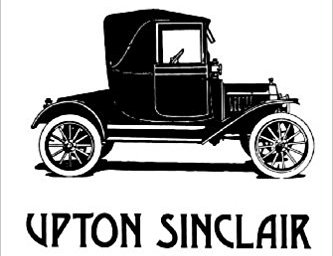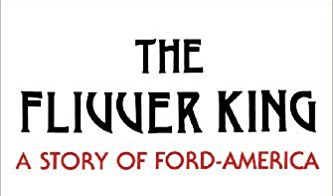Upton Sinclair’s The Flivver King can effectively be adapted to the big screen. With many different themes to touch on, including the changing political landscape and the swing of the economy, there is more than enough material to turn Sinclair’s novel into a major motion picture. For this movie to best connect to today’s audience, a retelling of the political and economic events shaping America during the beginning of the 20th century will not be sufficient. Instead, the strength of the movie will come through social commentary, following the lives of Henry Ford and Abner Shutt.

For this movie to be significant in today’s world, it is important the audience see Abner Shutt as a person who is not unlike themselves. The screenplay needs to be realistic and practical, so much so that the audience will care about Abner Shutt, played by Billy Crudrup. Crudrup would do an excellent job of portraying Abner, particularly Abner’s constant devotion to making, what he believes to be, the best choices for his family. However, multiple actors would need to be cast in order to best portray Abner during the progression of character from a young man to a much older man. For the movie to be successful, the audience needs to be introduced to the inner motivations and obsessions shared by each of the movie’s characters. This includes Abner’s family. It is equally important to understand Abner as it his 4 children, John, Henry (Hank), Daisy, and Tom. How these characters grow and how they are influenced by each other, is very important to the retelling of this story.
Another important angle to explore in this movie is that of family dynamics. When Milly Shut becomes ill and dies, Daisy begins to take a more prominent role in her immediate family. She had already become the confidant of both Hank and Tom; however, her mother’s passing certainly affected her role in the family. Daisy Shutt’s character progression throughout this story is as meaningful as any one of the many themes of Sinclair’s novel. We would cast Natalie Portman as Daisy Shutt. Portman would do a fine job of capturing Daisy’s willingness to best aid her brothers whose lives and beliefs continuously collide.

Henry Ford’s story is an important counterpoint to that of the Shutt family. He is ultimately beaten by his motivations and obsessions, drowning in his side pursuits. For this screenplay to be successful, it is important that the audience understand this and not blame Ford for the troubles which befall the Shutt family. It is similarly important that this screenplay not be a dichotomy between good (Abner Shutt) and evil (Henry Ford). For the audience to best understand the decisions made by these characters, they should not judge the decisions as right or wrong, but rather, they should be introduced to the complexities surrounding the decisions made.

Russell Crowe, perhaps cast as Henry Ford, would do an excellent job portraying the transformation of Ford from the aspiring young inventor to that of a scared/obsessed billionaire. This transformation, similar to that of Oscar Wilde’s “The Picture of Dorian Gray,” would span the length of the movie, with Ford’s character development acting as a key dynamic in the movie. The transformation would also show how the people who cross paths with Ford eventually shape and effect who he becomes. This social commentary is something which today’s audience can understand and relate to. Sinclair’s political and economic commentary would serve as an excellent backdrop for the movie’s personable social commentary.